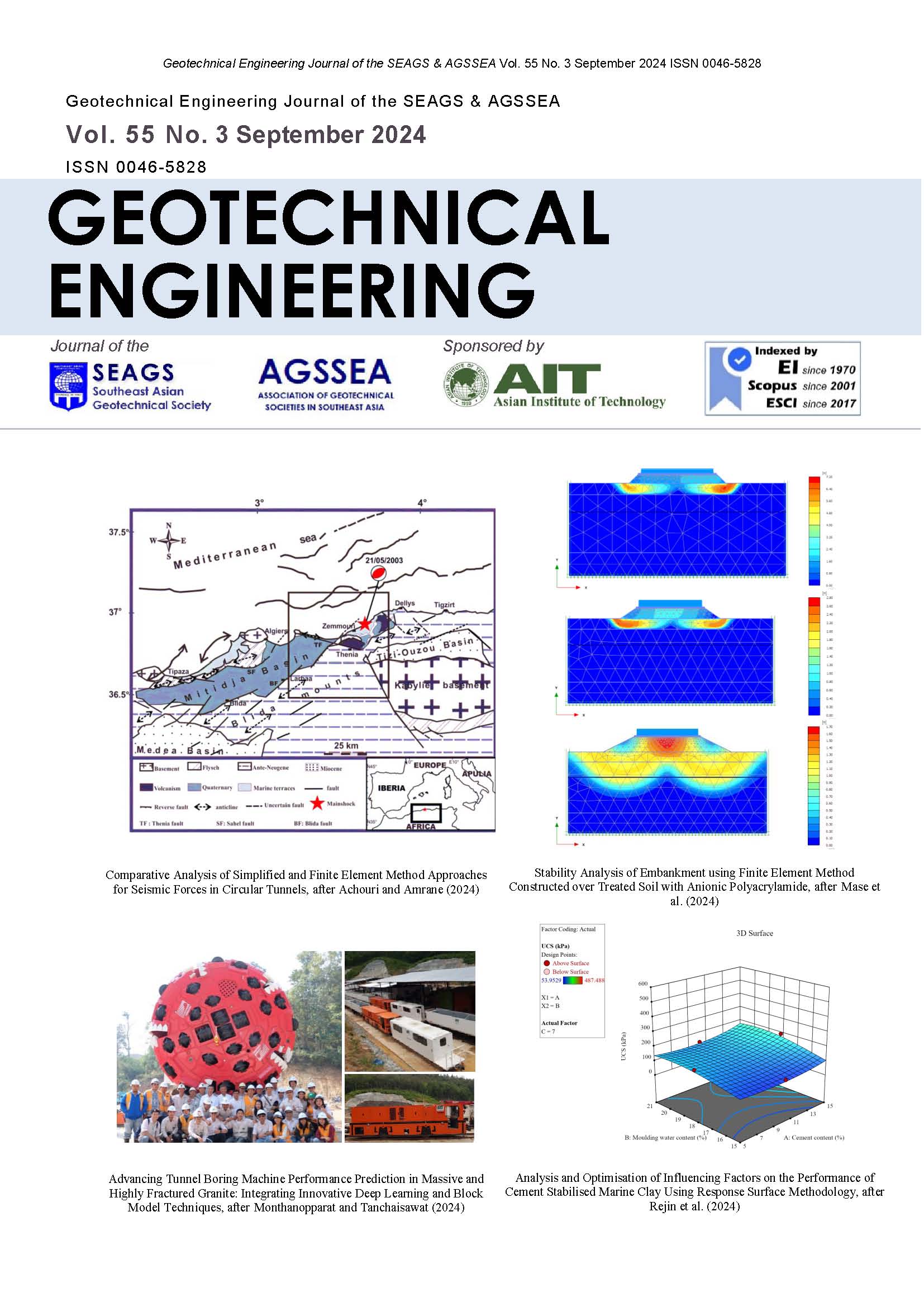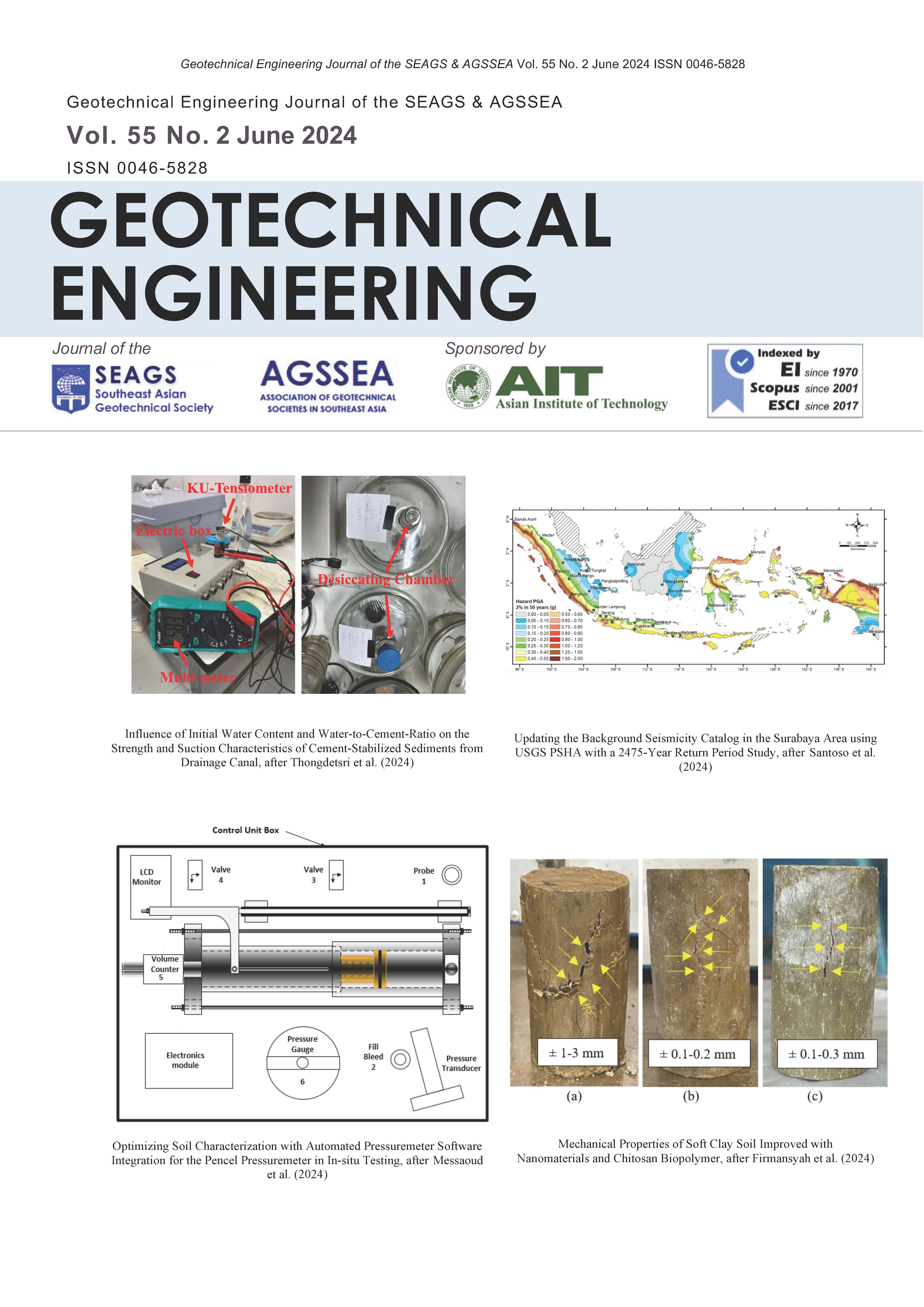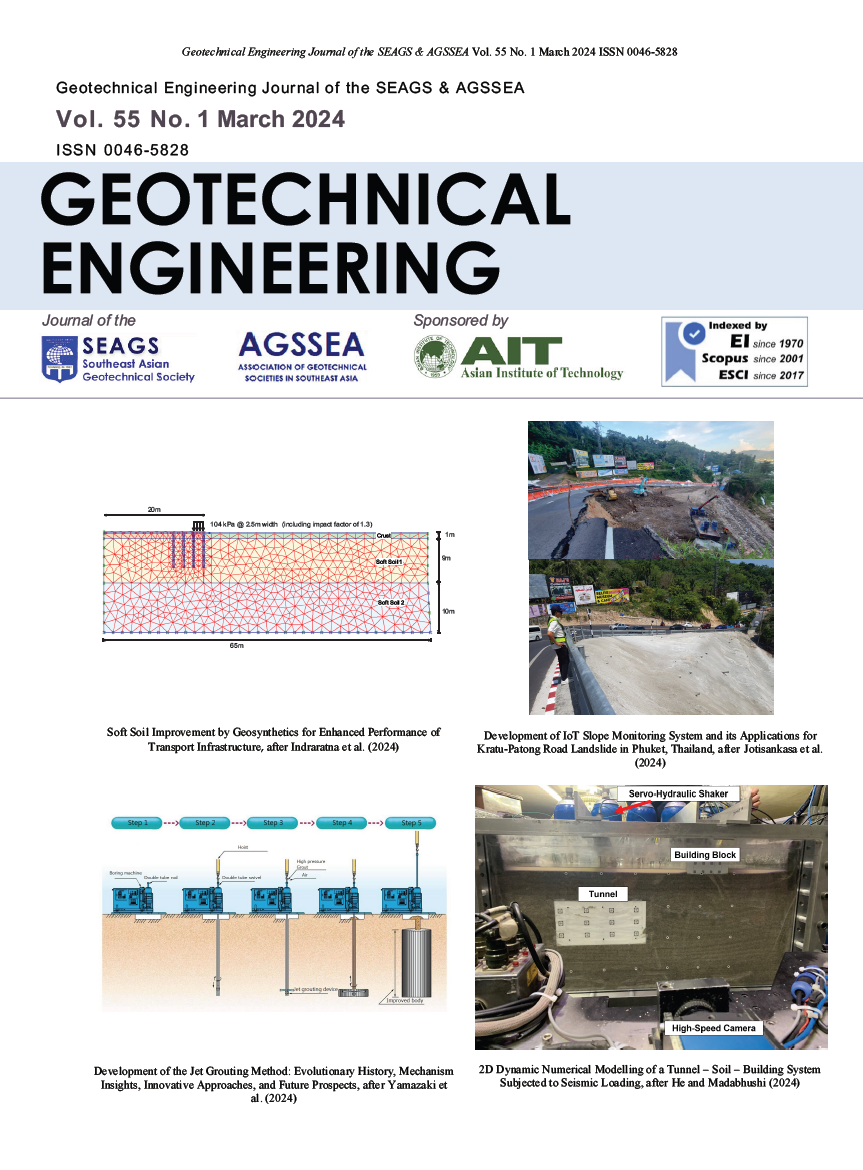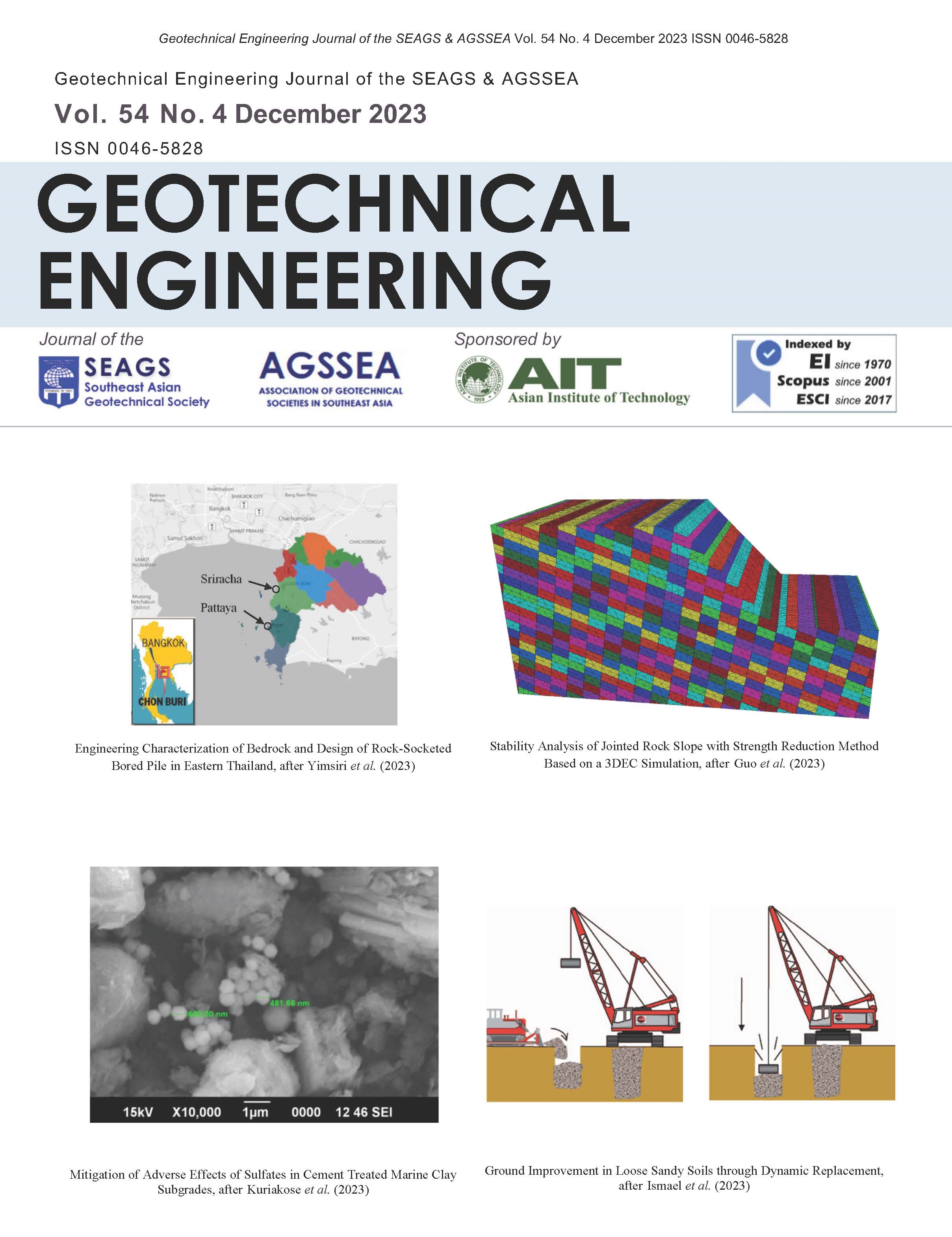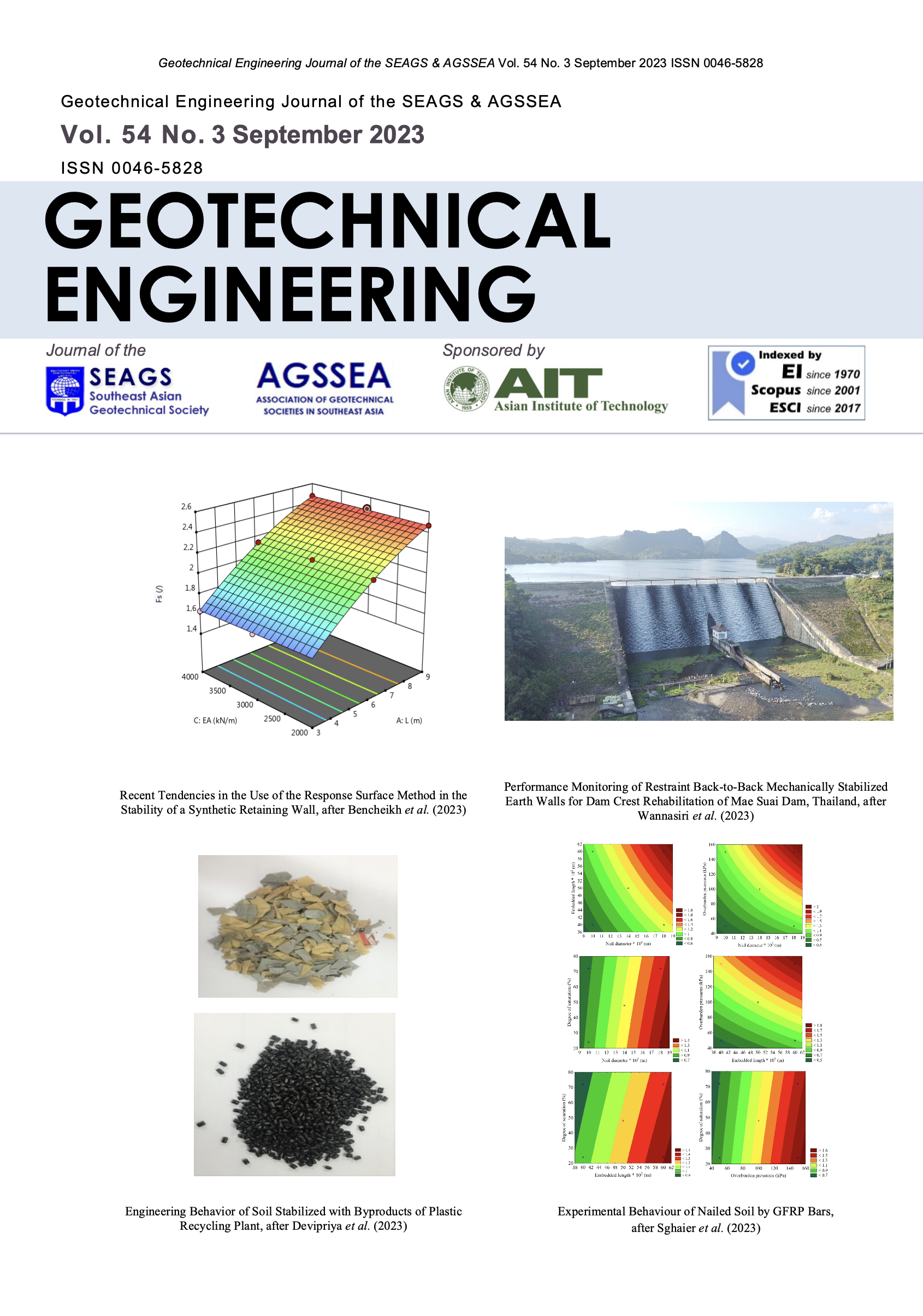Geotechnical Engineering Journal of the SEAGS & AGSSEA ISSN 0046-5828
Vol. 54 No. 3 September 2023
Effect of Lime and Cement Kiln Dust on Strength Characteristics of Expansive Soil
D. Ashwini and H. N. Ramesh
ABSTRACT: The research objective is to study the potential use of cement kiln dust to advance the engineering characteristics of black cotton soil (BCS) in India, which covers about 20% of the country’s surface area. Cement kiln dust is an industrial waste that is difficult to dispose of and poses environmental risks, and the demand for cement is growing globally. The study aims to use laboratory tests to assess the impact of lime and cement kiln dust on the strength properties of BCS and to mitigate the excessive heave associated with the soil. The research methodology involves conducting Atterberg limit, free swell, compaction, and unconfined compression strength tests on BCS specimens treated with lime in incremental orders of 2% up to 10% of the dry weight of the soil sample. The optimum percentage of lime treated BCS sample treated with CKD in incremental order of 5% to 20% of dry mass of sample. 6% lime content was considered to be the optimum dosage with maximum UCS value for 7, 14 and 60 days and further on addition of CKD to lime treated BCS 6%lime + 15% CKD was found to be the optimum dosage with maximum UCS value for 7, 14 and 60 days.
KEYWORDS: CKD, Lime, Black cotton soil, and UCS.









